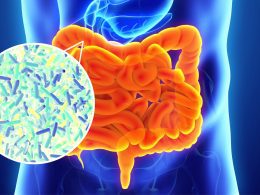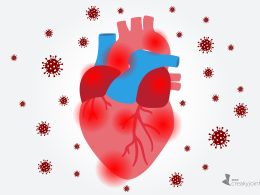Have you ever wondered why certain physical ailments can lead to feelings of depression? The answer lies in the complex relationship between inflammation in the body and its impact on our brain. In this blog post, we’ll connect the dots and dive into how inflammation can trigger depressive symptoms, offering a deeper understanding of this often-misunderstood connection. So buckle up and get ready for a fascinating journey through mind-body health!
What is inflammation and how does it lead to depression?
Inflammation is a complex condition that can lead to depression. When the body’s immune system reacts to an injury or a virus, it produces inflammation. This process causes the body to release chemicals, including cytokines, which damage cells and can alter behavior.
Depression often occurs when there is increased inflammation in the brain. Studies have shown that people with depression have higher levels of cytokines in their blood and more inflammation in the brain than people who don’t have depression. Cytokines are responsible for causing changes in mood and behavior.
The link between inflammation and depression is not fully understood, but it appears that increasing inflammation in the brain may lead to worsening of symptoms of depression. Treatments that reduce inflammation may improve symptoms of depression, and research into this area is ongoing.
The role of inflammation in the brain
Inflammation is a process that the body uses to protect itself from infection or injury. In the brain, inflammation has been linked with depression. Studies have shown that people who are depressed have higher levels of inflammatory markers in their blood and brains than people who are not depressed.
One theory as to why inflammation might play a role in depression is that inflammation can damage brain cells. This damage can lead to changes in mood and behavior. Additionally, inflammation has been shown to promote the growth of cancer cells. These changes could lead to the development of depression if they occur in the brain.
Another theory is that inflammation might be a trigger for depression. People who are already prone to depression might be more sensitive to the effects of inflammation. When inflammation occurs, it can cause pain, swelling, and change in sensations throughout the body. This can make life difficult for people with depression, making them feel even worse about themselves.
There is still much we don’t know about how inflammation plays a role in Depression, but these studies are leading us closer to understanding what needs to be done to treat this condition effectively.
How to reduce inflammation in the body
There is a clear connection between inflammation and depression, and scientists are still working to understand what causes one condition to lead to the other.
Inflammation is a natural response your body has when it encounters an inflammatory stimulus, such as infection or injury. When cytokines (inflammatory molecules) flow through your bloodstream, they can cause mood swings and anxiety.
Some factors that can increase inflammation in the body include:
Obesity
Chronic stress
Smoking
Genetics
Certain medications, such as steroids, NSAIDs (nonsteroidal anti-inflammatory drugs), and chemotherapy agents
Ways to prevent or treat depression with diet and lifestyle changes
In recent years, experts have begun to connect the dots between depression and inflammation in the body. In fact, it has been shown that inflammation in the brain is one of the main causes of depression.
There are a few ways that you can connect the dots and prevent or treat depression with diet and lifestyle changes. One way is by reducing your intake of processed foods and eating more whole foods. This will help to reduce your level of inflammation in the body. It also helps to keep your blood sugar levels stable, which can help to alleviate symptoms of depression.
Another way to reduce your level of inflammation is by exercising regularly. Exercise has been shown to reduce inflammation throughout the body, including in the brain. exercise also helps to improve moods by releasing endorphins into the bloodstream.
Additionally, you can try probiotics supplements as another way to reduce your level of inflammation and improve your moods. Probiotics are microorganisms that help restore balance in the gut microbiome, which can lead to improved mental health outcomes.
Conclusion
It’s no secret that depression and inflammation are closely intertwined, and the two conditions often go hand in hand. In this article, we’ll explore how inflammation in the body leads to depression in the brain, and we’ll provide some tips on how you can start to address this issue on a daily basis. By understanding how inflammation can impact your mood and mental health, you can take steps to reduce its negative effects and improve your overall wellbeing. Thanks for reading!












